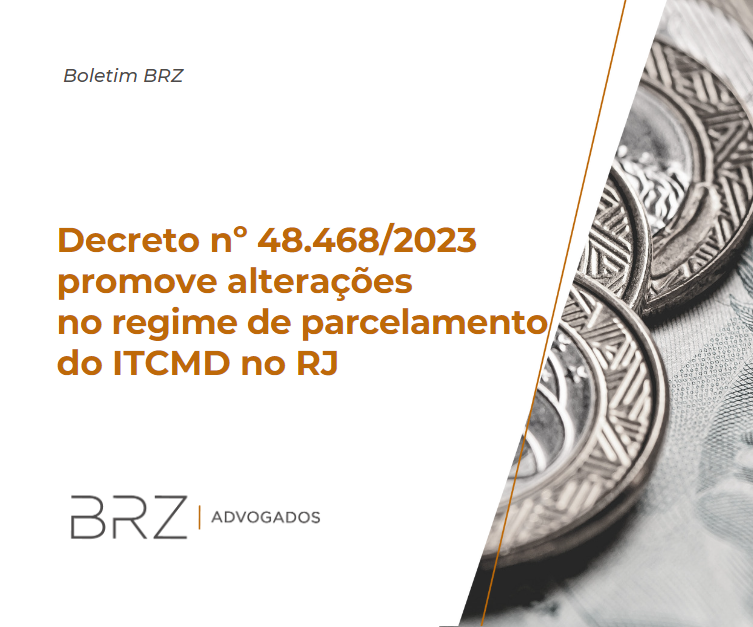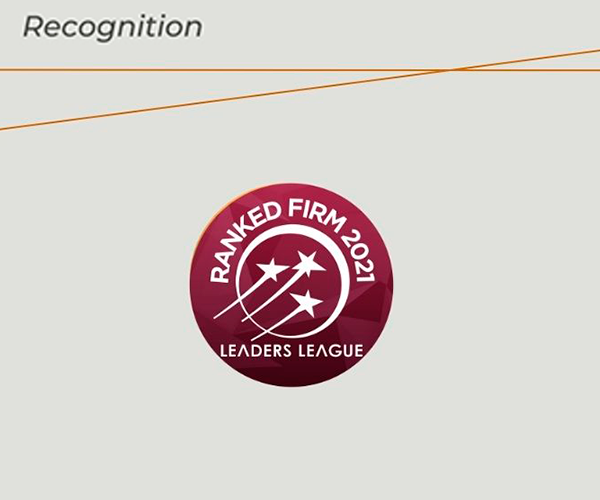Startups: Why do they deserve special attention?

Our lawyer Alessandra Salgado, specialist in Corporate Law and Mergers and Acquisitions, was interviewed for the Líder.inc portal of the LIDE – Group of Business Leaders about the Legal Framework of Startups, a Supplementary Law with the objective of creating several mechanisms to enable the operation of innovation companies. Full story at https://cutt.ly/bWwlYGg
The Legal Framework of Startups is the beginning of a legal look at companies that play an important role in the national economy.
Fernando Gentil Fernando Gentil, founding partner of GVBG – Gentil Monteiro, Vicentini, Beringhs e Advogados.
In the past decade, gradually the word startup was used more and more by the market and absorbed by the common folk. Currently, it is not uncommon to find several news about companies identified as startups and their surprising results.
However, conceptualizing what a startup is is not such a simple task, as pointed out by Fernando Gentil, founding partner of GVBG – Gentil Monteiro, Vicentini, Beringhs e Advogados. “Defining what a startup is is not an easy task. There are those who argue that a startup is related to an (earlier) stage in the development of a business organization; while there are those who see startups as a business model in and of itself. In particular, I very much like the concept contained in the book by the Brazilian Institute of Corporate Governance (IBGC) on Corporate Governance for Startups and Scale-ups that states that a “Startup is a scalable organization, with high economic and innovative potential (not necessarily linked to technology)””.
Alessandra Salgado, an associate of law firm BRGC – Barbosa, Raimundo, Gontijo and Câmara Advogados specialized in Corporate Law and Mergers and Acquisitions, also points out that the definition of startup goes far beyond the usual popular concept. “People usually relate startups to a newly constituted company, but the concept goes beyond that. From a legal standpoint, the startup is indeed a company that was recently constituted, but what’s more important in this regard is that it has an innovative, repeatable, scalable business model that operates under uncertainties.”
Running a startup is working with uncertainty
Both definitions presented by these Corporate Law experts associate startups with innovation. By offering a new product in the market, there is the possibility that an entirely untapped consumer market might be serviced, given that no competition exists. On the other hand, the risk is also high, for it can’t always be possible to measure consumer receptivity to the new product or service. That means that startups operate with high risk and, consequently, seek high return to compensate for this risk.
The world’s greatest economies benefited from innovation. World-renowned companies such as Microsoft and Apple offered products that had no market and weren’t even regarded as necessary until they were launched. Today, they sell items that are deemed essential by most people. This demonstrates that high risk is inherent to the pursuit of high-impact results.
The Legal Framework of Startups
Due to this scenario of uncertainties, Supplementary Law No. 182, of June 1, 2021, better known as the Startups Legal Framework, was drafted and it will come into force on August 31. With the aim of creating several mechanisms to enable the operation of innovation companies “the Legal Framework came at an excellent time, as it brings measures to promote entrepreneurship and implements rules for investments in startups, bringing a minimal regulation for a type of business that was largely deregulated and followed the current corporate rules, which were not created for this type of society”, comments Alessandra. In her eyes, “incentivizing the investments in startups not only boosts the economy but also recognizes the importance of innovative entrepreneurship for economic and social development and for the modernization of the Brazilian business environment”.
Alessandra Salgado
Alessandra Salgado, lawyer at BRGC – Barbosa, Raimundo, Gontijo and Câmara Advogados.
Main changes brought about by the new Law
The Supplementary Law brought several incentive and facilitation mechanisms for the operation of startups, the following being the highlights:
– Contracting with the Public Administration: Startups may now participate in an experimental regulatory environment program – the so-called regulatory sandbox of public administration bodies and entities – to develop innovative business models and test experimental technologies. Additionally, specific rules were set so that the Public Administration may conduct procurement procedures to hire startups individually or as part of a consortium for the development and/or implementation of innovative solutions, by observing the rules established in articles 13 et seq of the supplementary law, which will result in the execution of the CPSI (Public Contract for Innovative Solution), whose terms and conditions are also defined in the supplementary law. “After the end of the CPSI, there will also be the possibility that the Public Administration is able to execute a contract, without the need for a new bid, for the supply of the product, process or solution resulting from the CPSI, guaranteeing the startup a contract of up to 48 months,” explains the specialist of BRGC Advogados.
– Fundraising: Alessandra points out that “the Supplementary Law broadly and generically defines the investment possibilities, but more importantly, it lists in article 5 a series of modalities allowed for the raising of funds by startups that do not result in immediate interest in the stock for the investor”. Among them, Alessandra highlights the stock option agreement (similar to the Safe Agreement), the loan agreement convertible into equity interest (similar to the convertible note, widely used abroad) and the incorporation of a form of unincorporated joint-venture (SCP), a model that we have seen more frequently since the enactment of the supplementary law, and the issuance of debentures, which are debt securities that were previously typical of a corporation and may now be an option for companies with simpler structures. “In addition, the law defines that the investor opting to pay in capital as described in article 5 is exempt from liability for any debt of the company, including in case of judicial reorganization, which brings security to the investor who wishes to incentivize this type of business,” adds the lawyer.
– Changes in the Corporation Law: Among the changes promoted in the Corporation Law, Fernando Gentil highlights two that, in his view, will bring important facilities and savings to business owners. The first of these, in art. 143, concerns the reduction in the number of officers required in a corporation, from two to one single officer. “Thus, SL 182/21 further approximates the rules related to limited liability companies (regulated by the Civil Code) to those related to corporations. “It is worth mentioning that this change is valid for all corporations, open or closed, and it has no relation to the activity or revenue of the company (that is, it is not bound solely to innovation and startups),” says the lawyer.
The second change to be commented on is the change to art. 294, which now authorizes companies with annual gross revenue of up to R$78 million to (i) publish its results exclusively electronically (no longer requiring publications in an official gazette or in a newspaper), and (ii) replace the corporate books (like the share registration book, share transfer book, shareholders’ meetings minutes) with mechanized or electronic records. “These changes greatly simplified the procedures followed by corporations and consequently will have the effect of reducing costs significantly”, explains Gentil.
The importance of good business legislation
The Legal Framework of Startups is the beginning of a legal look at these companies that play an important role in our market. For Fernando Gentil, despite the improvements promoted by the Supplementary Law, the legal and judicial system still need improvement.
“The Legal Framework of Startups seeks to bring greater legal certainty to startup investors and those who contract with startups. It strengthens the cry of freedom that is so necessary and important to the private initiative initially given by the Economic Freedom Law. Having better laws that grant more certainty and incentive to investments in the innovation is more important than having our own legislation”, he goes on to say. In this context, Gentil argues that, as important as the existence of good standards, it s necessary to better apply the existing legislation – which, for him, has not been the case.
“I see it as sad to see that these rules are being applied terribly by the courts of Brazil, there must be, for example, a legal provision stating that the one who does not hold interest nor is a member (like an investor who executes a convertible loan agreement or who subscribes to convertible debentures) is not subject to the same responsibilities of members (because it’s not one) and, therefore, does not answer for the debts of the company”, concludes the expert of GVBG Advogados.
#startup #innovation # legalstartupsframework



